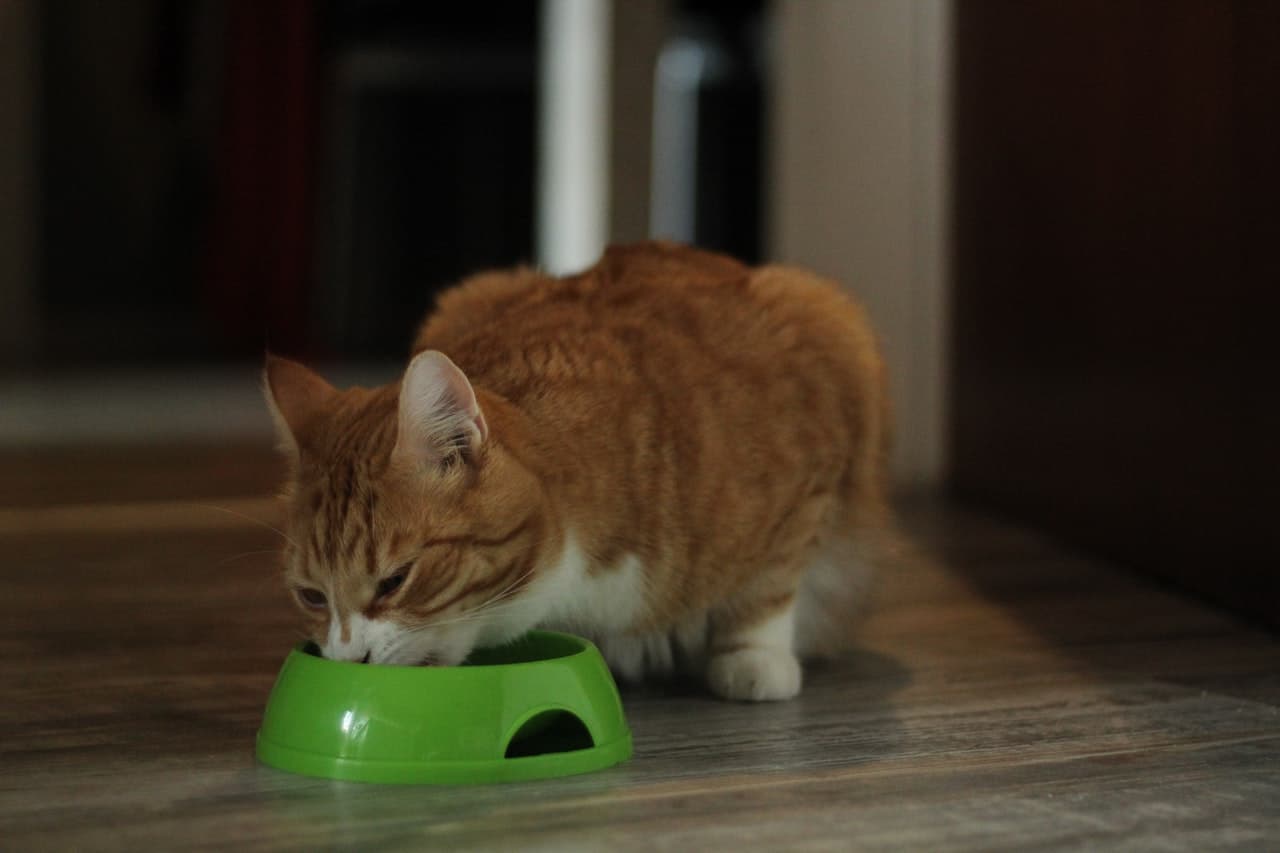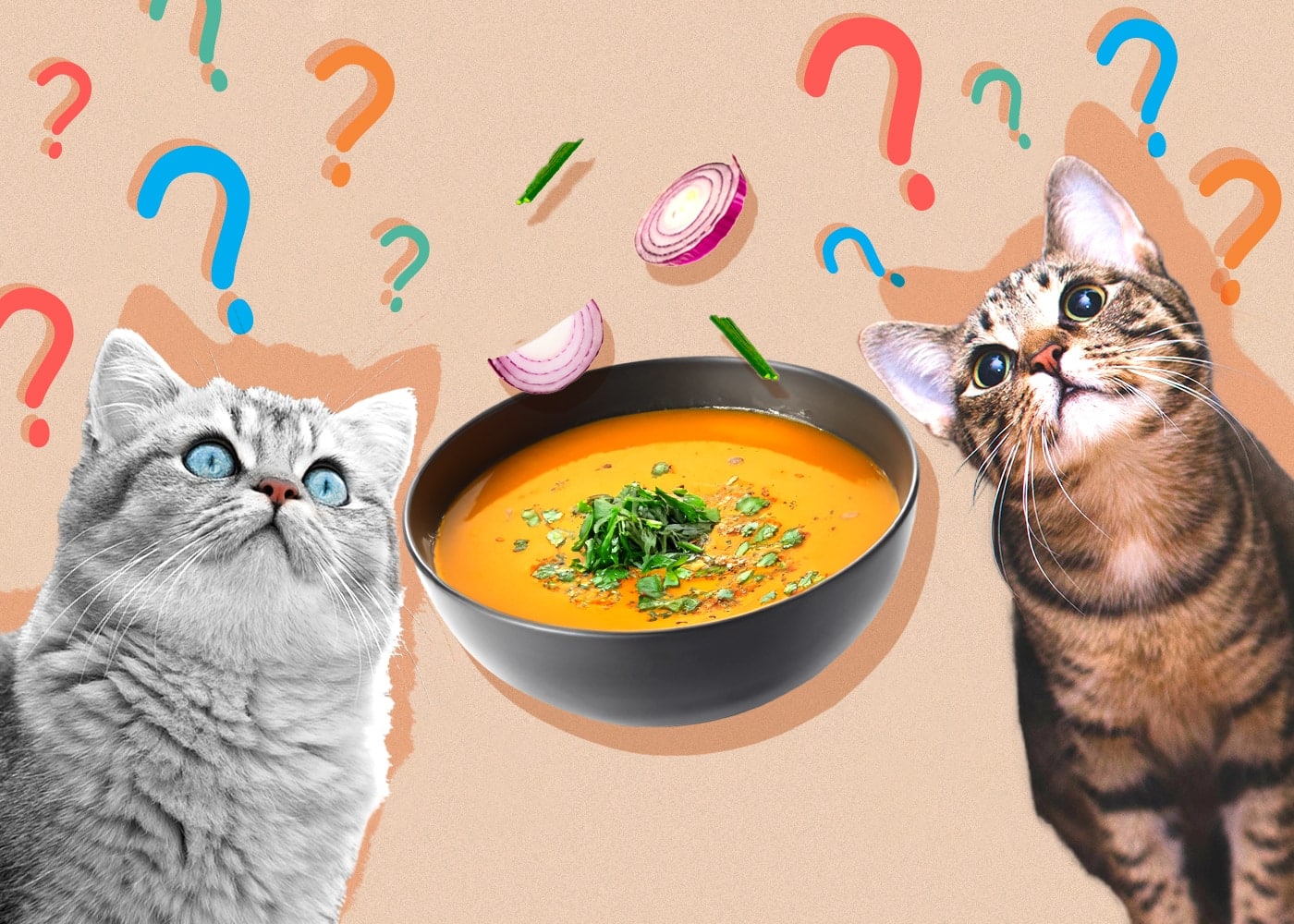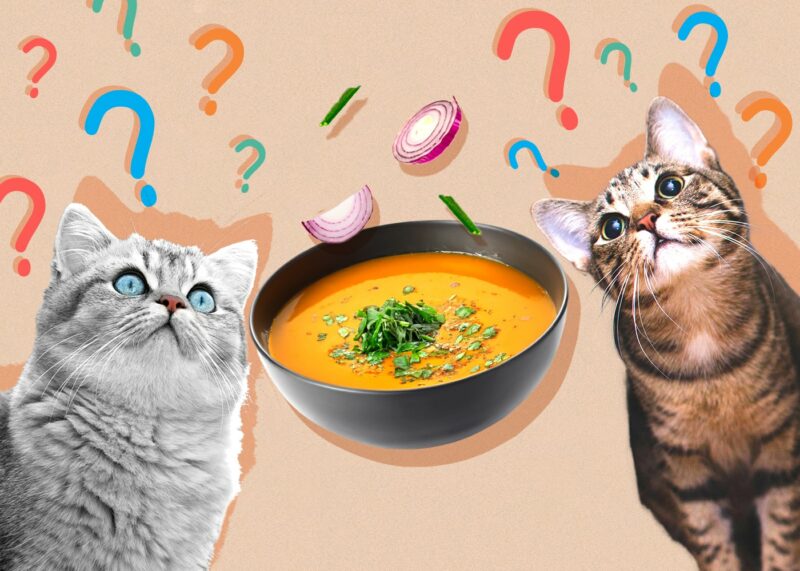Soup is a great meal to have for lunch or dinner. It is filling and comforting to eat on chilly days, and there are so many ways to prepare it. It really can be the perfect meal. However, you may be wondering if you can pour a bit of soup into a bowl for your cat to enjoy. Is it safe for them to have? Is it beneficial or dangerous?
Sadly, none of these questions have simple answers. In general, cats should not be eating human food. Many soups are harmful to cats because of the ingredients. That said, certain soups or broths can be beneficial for them.
This article explains why most soups are harmful and goes over the exceptions.

What Can Cause Soup to Be Harmful to Cats?

It’s not so easy as just naming brands or packaging to demonstrate which soups are safe and which are not. It all comes down to the ingredients. Here are some main ingredients commonly found in soups that are not safe for your cat:
- Sodium: Soup can have a high amount of salt, especially the canned variety. Manufacturers use preservatives to keep their soups fresh, and these are typically salt based. Although a cat would need to ingest about 2–3 g of salt per kg of body weight to get intoxicated by sodium, remember that cats are not that heavy, so high-sodium human foods should be avoided.
- Garlic and onions: Both garlic and onions are part of the same plant genus, Allium. Anything in this group is toxic to cats. Tiny amounts will cause nausea, vomiting, or diarrhea, and frequent intake or large servings can cause oxidative damage to the red blood cells, resulting in anemia.
- Milk and cream: While dairy is not considered lethal for cats, it can often cause digestive upset, as most adult cats are lactose intolerant. This happens naturally, not long after the kitten is weaned from the mother. As their bodies adjust to solid food, they no longer need to sustain themselves with milk, so their ability to digest it disintegrates.
- Various vegetables and herbs: Other common soup ingredients to watch out for are leeks, eggplants, scallions, and chives, which are also members of the Allium genus.
If your cat digests any of these and you have any concerns, it is always better to see a vet.
When Can Soup Be Good for Cats?
As cats get older, they are more prone to health issues. They may also require fewer calories than younger cats and might need extra hydration and diet to accommodate this. Certain soups are low in calories and can entice cats to consume more water and get extra vitamins, minerals, and protein without excessive calories, but these should not be the only things they eat.
Cats suffering from dental issues or mouth sores may appreciate the change. Being a liquid, soup also helps cats in recovery, as it is easier to digest than solid food. In addition, soup helps cats that don’t intake enough water throughout the day and can be used as a great supplement to their hydration.
Cat-safe soups can aid digestion and even help cats’ joints. Soups made with beef bones have high amounts of collagen. Collagen protects joints and helps to soothe the intestinal lining of your cat’s digestive tract. This is why it is great for older cats, especially those suffering from arthritis, and for cats with sensitivities and recurrent digestive problems.
Since the soup trend has hit the pet industry, many cat brands now offer kitty soups. But there are also recipes available if you wish to make your own at home. A homemade cat-safe bone broth is a healthy choice for your furry friend. However, it’s always good to check with your vet about homemade bone broth recipes and safe serving sizes.
Final Thoughts
We love sharing our food with our cats. It is a fun bonding activity; plus, we love spoiling them! However, you want to ensure that the food that you give your pet is safe and healthy. Most soups we eat are not good for cats because of spices and other ingredients. It is best to stick with cat-friendly recipes approved by your vet!
Featured Image Credit: PJjaruwan, Shutterstock











